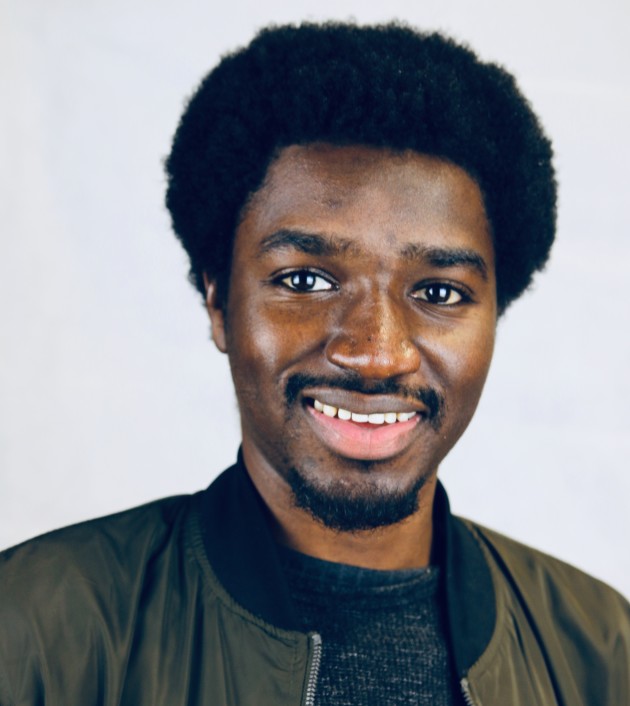
These engineer profiles are part of an earlier project, and some of our staff and students featured may have now left Imperial.
Al-Amin Bashir Bugaje is a PhD student in our Control and Power group, helping develop the 21st century electrical power networks we need to keep people connected in a decarbonised world.
“As part of climate change fighting initiatives, there is a large-scale effort to integrate very large shares of renewable energies into the transmission grid. However, renewable energies are notorious for their intermittency and lack of inertia, which makes system operation using conventional approaches very difficult. My research leverages the availability of data and machine learning tools to draw insight from that data so that the system operator keeps the lights on.”
Al-Amin was set on his career path in primary school. “I had a maths teacher who sparked a curiosity and love for the sciences that ultimately lead to engineering.” The idea of being able to help others and solve problems has been part of his engineering story: “My undergraduate project —a real-time energy monitoring system — was borne out of a need to contribute to the energy management issue the university was facing.” The project won Al-Amin a prize for innovation and entrepreneurship, and his top performance secured him a postgraduate scholarship.
The value of people cannot be overemphasised. The primary shaper in my ‘Engineering Journey’ has been the people I have met along the way."
“Energy access is one of the pressing challenges plaguing my home country and sub-Saharan Africa at large. I did my post graduate degree in Future Power Networks at Imperial where I met my mentor Dr Cremer and my current supervisor Professor Strbac. They laid the foundation for my current path. The universe facilitates whatever goal you set through people, and hence my love for meeting new people.”
Connecting people
As PhD student rep Al-Amin is responsible for keeping students connected too — coordinating activities and fostering a sense of community. He is also vice chair of Imperial’s Climate Entrepreneurs Club. “It’s a multidisciplinary team of Imperial students from different backgrounds — Business School, Engineering, Science — who seek to address climate change with real impact. The aim is to unite and motivate each other to take entrepreneurial initiatives that can make a positive impact on global society. Sustaining these communities during Covid has been particularly challenging, with "Zoom fatigue" and lack of that human touch, but we are invested in furthering our cause.”
The Climate Entrepreneurs are planning to organise “innovation jam sessions” where students from different backgrounds and experiences can collaborate and develop their ideas. Al-Amin says the community is open to people with various levels of experience and interests. Find out more about the Climate Entrepreneurs.
If engineering was not his career Al-Amin might have been drawn to become an economist or a poet. “An economist because the issue of inequality is very close to my heart, a poet because, well, “shall I compare thee to a summer’s day?” Meaningful words are eternal, scorched on people’s hearts. Who wouldn’t want to be eternal !?”
Without access, we alienate. Without networking, mentorship is not possible. Without equipment, the best ideas die out in the fringes."
Al-Amin says his journey in engineering has been shaped by the access provided from scholarships and mentoring, and like many of our engineers, he agrees there is a real need to open up the opportunities.”
“I think there is a need for a conscious posturing with a view to increase diversity and representation in the talent pool. One approach universities and industry could take is to create specialised streams of entry that are deliberate in taking chances on people, mentoring them, and teaching transferable skills. Increased collaborations such as industry-sponsored hackathons could help to identify and recruit those talented people. There could also be an effort to create hubs in less privileged areas to encourage and groom talent.”